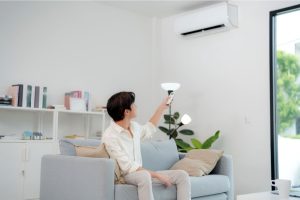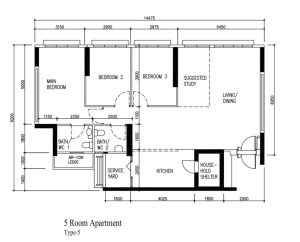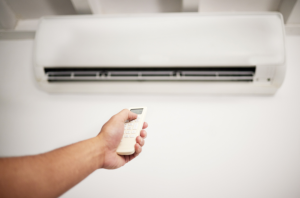Living in Singapore, where the weather is consistently hot and humid, an air conditioner becomes an indispensable tool for our comfort. This is particularly true at night, when we seek a refreshing respite after a bustling day. However, running the air conditioner non-stop can significantly increase your electricity expenses. To help you save money without compromising on your desired level of relaxation and comfort, here are some valuable tips and suggestions.
1. Consider An Energy-Efficient Air Conditioner
To save money in the long run, investing in energy-efficient aircon is a wise choice. These air conditioners have a reduced operational cost, translating to significant savings over time. Remember, the number of stars on an appliance’s energy star rating directly indicates its efficiency: the more stars, the greater the efficiency and the more money you save.
For instance, a 4-tick air-conditioner can save you approximately $450 annually in electricity bills compared to a 1-tick model. Similarly, opting for a 4-tick refrigerator can pocket you a savings of about $70 a year when compared to a 2-tick model*.
*Based on average 2012 electricity tariff of $0.2989 per kWh, assuming a single-split, 1000W air-conditioner used for 365 days a year and a 400-litre refrigerator used 365 days a year.
2. Set your air conditioner to the recommended temperature
According to NEA Go Green tips, the recommended temperature setting is at about 25 degrees Celsius. Furthermore, a surprising amount can be added to your monthly electricity bill by even making minor adjustments to the temperature settings of your aircon.
For instance, if you raise 1 degree of aircon temperature, you might save up to $25 a year*!
*Based on average 2012 electricity tariff of $0.2989 per kWh, assuming a single-split, 1000W air-conditioner and/or a 31W electric fan where relevant. Used for 365 days a year.

3. Keep Your Aircon Clean - Save Money
To save money on your electricity bills, it’s crucial to keep your aircon unit well-maintained. An aircon that’s regularly cleaned and serviced runs more efficiently than one that’s been neglected. When you desire faster cooling or a lower temperature setting, a poorly maintained aircon has to work harder, consuming more electricity in the process.
Moreover, neglecting your aircon’s maintenance increases the risk of issues like aircon leaking water.
If it’s been over 3 months since your last aircon service, or if you’ve forgotten when you last had it serviced, contact us immediately to schedule a maintenance session!
4. Standby Mode Are Costing You Silently
To save money on your electricity bills, heed the advice from NEA Go Green Tips and switch off your aircon rather than leaving it on standby mode when you’re not home.
Many of us have the habit of leaving our electric appliances on standby mode for the convenience of turning them on/off using remote controls or smartphone apps. However, this convenience comes at a cost. Standby mode can contribute to up to ten percent of your home’s total electricity consumption. Always remember to power down any electrical appliances when they’re not in use.
By being diligent and turning off these appliances, you could potentially save up to $70 annually*.
*Based on average 2012 electricity tariff of $0.2989 per kWh, assuming 35W of standby power in a home.
Conclusion: The Path to Save Money and Sustainability
In the face of rising electricity tariffs and the ever-increasing demand for energy in our daily lives, finding ways to save money becomes more than just a financial decision—it’s a commitment to a sustainable future. By choosing energy-efficient appliances, maintaining our aircon units, and being mindful of our daily consumption patterns, we can significantly reduce our monthly bills. These practices not only help us save money but also pave the way for a more environmentally-friendly lifestyle.
As we step into 2023 and beyond, let’s embrace these energy-saving habits. Every small change we make not only helps us save money but also contributes to a greener planet for future generations.






